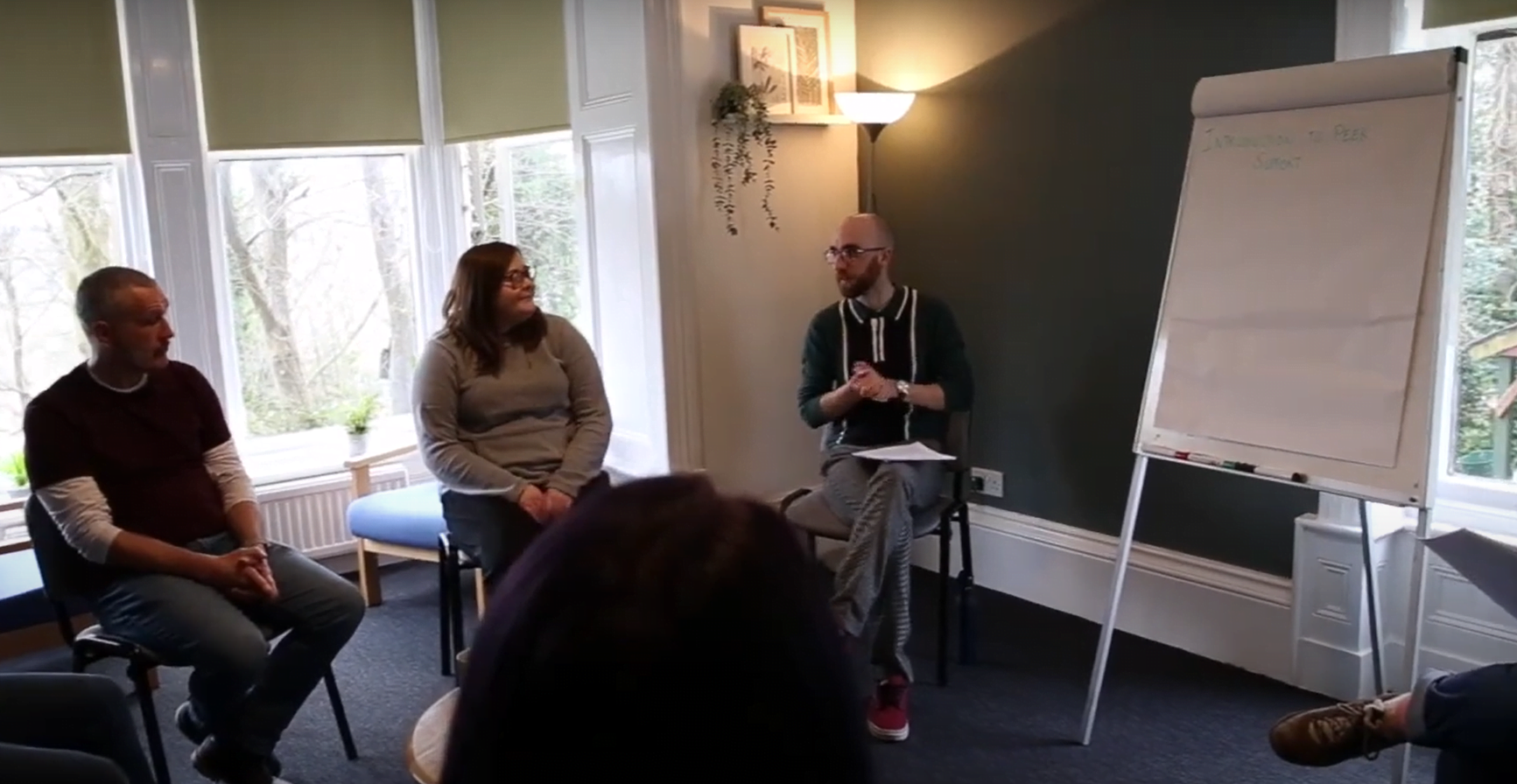Talking can be one of the most effective support strategies for people experiencing mental health difficulties. Speaking about our experiences helps to pin them down, to understand them and ultimately come to terms with the way we think and feel.
All peer support groups are different, and this is part of the beauty of them. Each group consists of individuals with completely different experiences, and there’s a rich variety of lived experience to share and benefit from. We’re more similar than we are different, and seeing the parallels between our situations and those of our peers can help to bring something very positive into our lives.
What can I expect at my first peer support meeting?
Every peer support group is different, but most share a few common basic steps. At your first peer support meeting it’s likely that you’ll briefly introduce yourself to the group (usually just your name, though sometimes a few more details can be shared). Following on from that, groups tend to begin with a fairly low-stakes initial discussion to break the ice, before taking on a more difficult or specialised topic. Towards the end of the session, it’s common for practitioners to facilitate a ‘check-out’ discussion, which is ideal for ending the session on a positive note.
Will I have to talk?
Part of the magic of peer support groups is that they allow you to listen. In most peer support groups, you aren’t required to talk (apart from introducing yourself, or the occasional ice-breaker). Instead, you’re encouraged to contribute when you feel comfortable doing so. This allows you to be the most genuine version of yourself, instead of feeling pressured to say something. Of course, we hope that you’ll feel comfortable contributing to the group in time, but this level of comfort takes different people different lengths of time to achieve.
What rules are there?
At Leeds Mind, we think of them as ‘group guidelines’ rather than rules.
Again, all peer support groups are different, but there are a few general basics that should go for all:
- Firstly, the group is a safe space. It’s perfectly okay to disagree with somebody, but it’s important to remain respectful and tolerant of others’ choices and opinions.
- Secondly, members need to feel confident sharing deeply personal experiences within the group, so confidentiality is very important. Though you may find it helpful to talk to your family or friends about topics you discussed in a peer support group, you must not disclose anything that was shared to the group in confidence.
- And lastly, we don’t give each other advice or impose our opinions on what others should do. We share our own experiences and then it’s up to other people to take away what they need from the conversation for their own learning.
Is peer support expensive?
All Leeds Mind Peer Support Groups are free.
In general, the cost of peer support is usually much lower than other types of support, such as private counselling. While there are still running costs to be met, such as venue fees and the cost of a trained practitioner to run the group, by sharing these costs amongst multiple members, it’s possible for organisers to keep costs affordable.
Is peer support right for me?
For many people, peer support groups become an essential part of maintaining or improving their mental health. Speaking with people who are on your side, and who are willing to share their lived experiences with you, is a powerful and positive force. While peer support may not be the only support mechanism a person benefits from, it is almost universally an important tool for achieving better mental health.
Try a Leeds Mind peer support group
Leeds Mind offers a range of peer support groups, courses and workshops. To find out more, or to book your place, visit our peer support guidance page.
https://www.leedsmind.org.uk/services/peer-support/
This blog was written for us by a volunteer, who donates their time and skills to further our cause. A big thanks to our volunteer! For more information about volunteering opportunities, you can visit our volunteering page.




